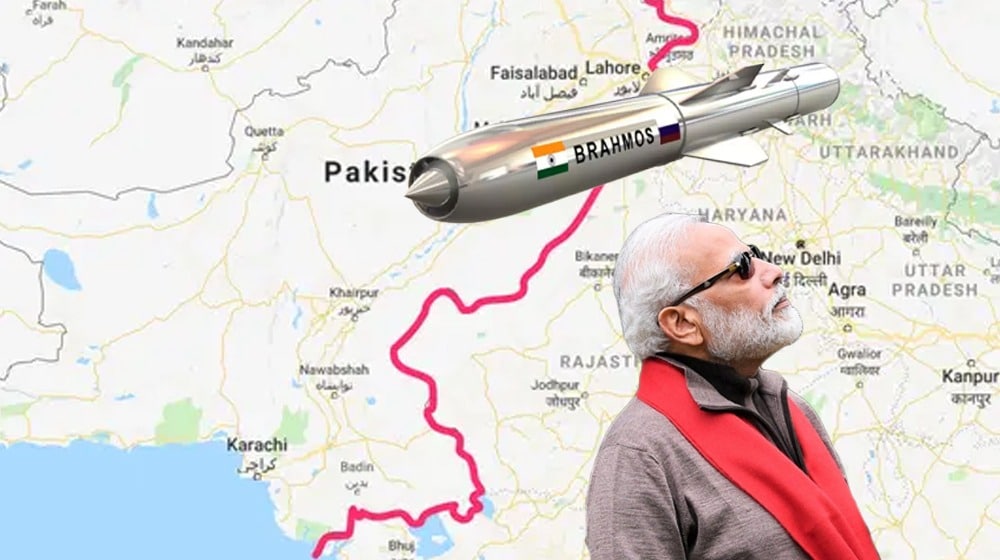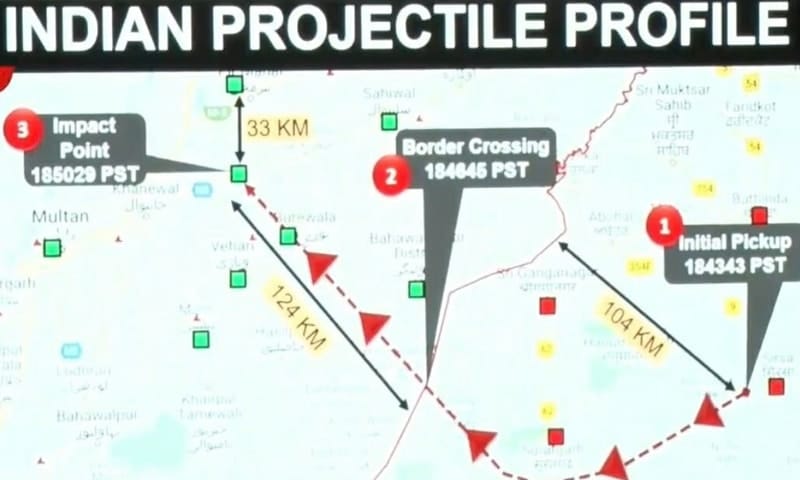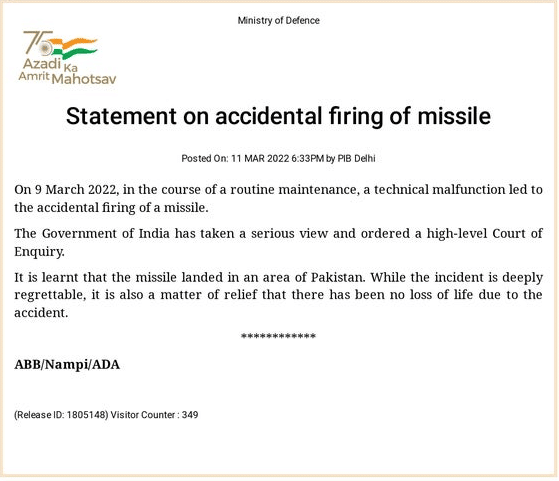The city of Mian Channu is a quiet, picturesque, sleepy town in the Southern part of Pakistan’s Punjab Province. Not a great deal happens in Mian Channu. It rarely, if ever, gets mentioned in the news. In fact, even most Pakistanis will not have heard of the place. And that’s probably how the people of Mian Channu (or, as the cool kids there know it, MC) like it.
They are happy to go unobtrusively about their main business of growing crops, quietly and stoically feeding the rest of Pakistan. Mian Channu is not of any strategic significance. It’s not home to any military bases – therefore, no potential targets for foreign aggressors to aim at. Its main claim to fame is the folktale that during the British Raj in India, the colonial administrators took umbrage with the name and decided to rename it. Unfortunately for them, they underestimated the miraculous powers of the saint after whom Mian Channu was named. During the night, so the legend goes, all the name-posts had reverted to the original name for which it now and, forevermore, will be known. The poor, hapless Brits, for their part, knew that they were beaten and never again tried to mess with Mian Channu.
So, this sleepy backwater – home to around 65,000 inhabitants – must have been surprised beyond measure when, in the middle of one otherwise ordinary night, a UFO unceremoniously landed in their midst; an unprecedented event that had international observers, political and military leaders, and even the world’s diplomatic community talking about their little hometown.
The provenance of the UFO has been traced back to India. Two days after the Indians attacked a poor defenseless wall in Mian Channu, the Indian government finally admitted that one of their missiles had gone rogue and had – against military orders – attempted to conquer the strategically unimportant Mian Channu. The little robots inside the missile must have realized that their political masters didn’t like Pakistan all that much and thought to curry favor with them by taking it upon themselves to show those pesky Pakistanis what India was made of. Why they chose Mian Channu is anybody’s guess, but perhaps Indian artificial intelligence, like Indian Military Intelligence, is not as intelligent as the word implies.
The wall in question was utterly obliterated and the cost is likely to run into the thousands of rupees. The cost of the missile is estimated to be around $2.75 million so in this unequal struggle between the BrahMos Cruise Missile and the aforementioned wall in Mian Channu, our very own David and Goliath story was being heroically played out. Locals say that the wall bravely stood its ground for as long as it could against overwhelming odds, but the Indian missile finally won the day. Like the field of cows obliterated by the Indian’s last ‘surgical strike’, India has shown that nothing – bovine or concrete – can stand in its way.
India, in a diplomatic twist to the story, actually gave an unprecedented apology for the damage to their neighbor’s wall and there are rumors that they will be sending a team of mustachioed builders to erect a better wall, drink a few cups of ‘fantastic’ tea, and, thereby, restore amicable relations. It’s the least they could do, of course. An apology from the Indians for military ‘misadventures’ is long overdue. It’s hard to keep track of the number of times missiles, personnel, and even submarines have strayed into Pakistani territory. Nary a word of apology for any of these belligerent moves and even this apology was only grudgingly given. It was also a little too nonchalant for Pakistani tastes. Most disturbingly, however, was the fact that India did not inform their Pakistani counterparts immediately the ‘malfunction’ occurred – a delay which, if wiser heads did not exist in Islamabad, could have led to catastrophic retaliatory measures.
The fact remains that, notwithstanding the slightly lighter tone of this article, the rogue missile could have potentially killed innocent civilians; it could have brought down airplanes and, because of the perennially heightened tensions between Islamabad and New Delhi, could have led to tit-for-tat strikes culminating in – and this is never too far-fetched a scenario in this part of the world – nuclear war.
The claim that the missile was under maintenance and was fired prematurely has had some people making unfavorable comments about India’s inability to control its urges. The premature explosion cannot be explained away by the Indian Government’s simple statement of regret. Questions remain and, of course, Islamabad has asked for a more detailed investigation and assurances that India’s control of its weaponry has not been compromised.
But how can a state-of-the-art missile like the one launched from Indian soil malfunction in the way that it did? The Pakistani military, who retroactively traced the trajectory of the missile showed it to have been traveling in India when it suddenly – of its own volition, according to India – decided to take a more scenic route over Pakistan. Is this a case of the robots taking over as we had always feared? Or, as my friends ‘who know about these things’ tell me, could it be that the missile was hacked by rogue elements in India? (The BJP government is at least one of the likely suspects if we’re looking for rogue elements, surely).
If this is the case, then this is more serious than just an epic, if unequal, battle between India and the walls of Mian Channu. India will be frantically scrambling to assure their friends in the West that there is actually ‘nothing to see here’. Analysts have worried for many years about whether or not the two countries have adequate control measures in place for their nuclear arsenals. This is something which has exercised the minds of most international observers, with most suggesting that Pakistan – coincidentally a Muslim country with the bomb(!) – is particularly vulnerable to being hacked or having its nuclear power misused by rogue elements. Imagine the embarrassment for India, therefore, when the inferences are made that they, and not Pakistan, have been a little careless with their hardware.
Therefore, while India’s “Oops, my bad!” style apology may be a step in the right direction on a diplomatic level, it does not answer the hard questions that are now being asked. While it may be possible that this was a ‘misfire’ or that India’s only intention was to test the strength of Pakistan’s walls, it is also not too far-fetched to assume that the missile may have been fired deliberately or may even have been hacked by unknown individuals. Which raises the specter of this kind of thing happening again. Only a week earlier an Indian submarine was turned away from Pakistani waters. – not the first time this has happened in recent years. Was this also a ‘malfunction?’ At some point, Pakistan’s forbearance will be tested to the point of breaking – the consequences of which could be disastrous.
Because, despite all the saber-rattling and constant underhanded lobbying, India has learned to its cost in the recent past, that the mighty walls of Mian Channu are not the only solid structure standing in its way. It’s a lesson India would do well to remember.

























India has tested Pakistan’s defense system capabilities. And here we are making fun of them despite a failure in our defense system.
Agreed we don’t even able to deducted it.
lol, no one in the region have the capability to track and shoot down a ballistic missle flying at this height. Pakistan successfully tracked the projectile and it is India that needs to answer in this civilized world. You just cannot throw a nuclear capable missile just like that.
They are testing our water, land and air space defence system again and again, and still you are asking the questions why, how you did this and that. Excuses like hight and type of tactical weapons are worthless. Yes, they have to answer many of our questions about this incident but they are not going to do it. We can raise these questions at international level and will be appraised for keeping patience and peace on this matter. But the fact is India has achieved the said goal successfully.
Its Pakistan’s failure to intercept it at its border line in the air while flying in.
I am surprised on who has written this article in desperate and failed attempt to sound sarcastic.
The point is not the location, or what they wanted to achieve. The Question an sane mind would ask.
1- Why did’nt the our Defense System detect it. Its not first time that Territories inside Pakistan have been attacked (intentionally or mistakenly). ref.. Abbottabad, Balakot….
2-For 2 days the ISPR was calling it Flying Object UFO etc etc..Its only after Indian Press release that it was called a Missile.
I wonder what will happen in India launch it intentionally? will the air defense systems intercept it or give height, speed and other excuses?